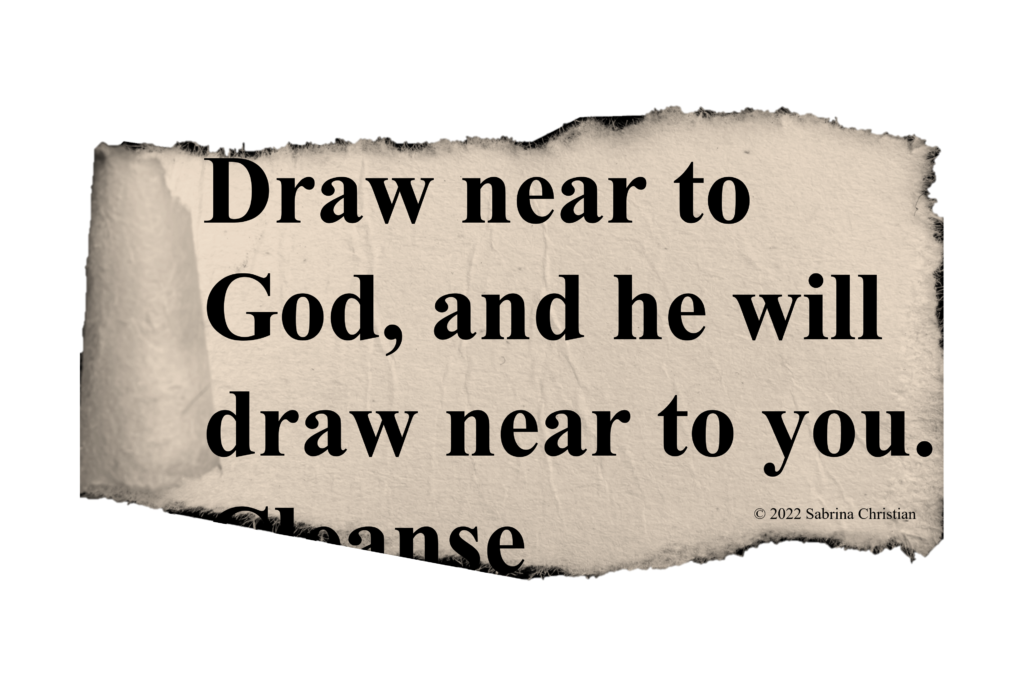
As I read devotions or the “verse of the day,” I often record a scripture in my Favorite Scriptures file when that scripture resonates with me. Recently, when reading the Bible, a scripture stood out. I opened my file and verified that I had indeed recorded it: “Draw near to God, and he will draw near to you.” (James 4:8, NRSVUE) That snippet from James 4:8 is comforting. Some translations read “come close to” or “approach” God. It sounds like a simple act of mutual fellowship: come to God and God will come to me.
However, in reading the Bible, I realized that I had truncated God’s Word, albeit inadvertently. James 4:8 actually states:
Draw near to God, and he will draw near to you.
Cleanse your hands, you sinners, and purify your hearts, you double-minded.
I had documented the “feel good” part of the scripture but not the part that elucidated my responsibility in “feeling good.” I had recorded what God would do for me, but not what, nor how, I needed to do in return. I had missed a key element in maintaining my covenantal relationship with God. This omission creates a barrier in our mutual fellowship.
James was addressing an audience who professed to follow God, but were chasing worldly gain. For these double-minded people, God was a means to an end—a source of personal gain. In their quest for gain, some resorted to crimes against each other, such as, theft, oppression, and murder. James was reminding them that they could not serve both God and the world. That same admonishment holds true today. The totality of James 4:8 reminds me that it is not enough to simply seek God. I need to draw near with a contrite heart and single-minded focus on serving one Master.
I am realizing that devotions or the “verse of the day” may only include that portion of a scripture that supports the main idea, while throwing away the rest of the verse. While a truncated verse may be the crux of a daily devotion, it is not the whole Word of God. The “verse of the day” can offer comfort and hope, but it may not reflect the totality of God’s Word. As Christians, we must experience the wholeness of God, not just the snippets that make us feel good. Being a child of God requires work. During devotions (or even sermons), I need to open my Bible to ensure I read the referenced scripture in its entirety. I want all of God’s Word.
Reflection: What is your favorite Bible verse? Is it complete or truncated? Do you understand the context of your favorite Bible verse?
Reflection: The bolded text represents verses of the day as seen on social media. Why do you suppose the underlined portion was omitted? How does truncating the verse alter its message?
| Psalm 100:2 | Serve the Lord with gladness; come into his presence with singing. |
| Matthew 7:12 | In everything do to others as you would have them do to you, for this is the Law and the Prophets. |
| Romans 12:21 | Do not be overcome by evil, but overcome evil with good. |
| Lamentations 3:22 | The steadfast love of the Lord never ceases, his mercies never come to an end; |